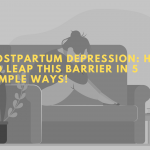In the last post, we talked about Bipolar Disorder what causes it, what are the potential cures, research done for advancing the treatments of the bipolar disorder, laid a general overview of the condition.

The symptoms of an episode that are major red flags are the feelings of powerlessness and loss of control over life, people start behaving dejected and low. Also, they can exhibit signs like raised enthusiasm or feel elated over nothing. As a person living with the patients, you have to be on the lookout for any developments of such kind.
Here, we are going to talk about what cures and treatments of bipolar disorder exist and how can you as a partner or a friend or a family member can help the person you know that is suffering from this disorder.
Bipolar Disorder impairs one from making decisions lead by rationale and clarity, individuals tend to find themselves surrounded by crippling anxiety. The response to daily life is aggravated and extreme than the regular folks and if not contained in time, can lead to disastrous outcomes. We understand it is difficult to have to manage the household when you have a spouse or a child suffering from this disease, the stress from work coupled with the daily grind of life; compounded by the exertion laid by taking care of the family is just starting. But by maintaining a peaceful environment is essential if you want to do your part while they undergo the treatment and care for bipolar disorder.
It is crucial to know that there are treatments of bipolar disorder that help cure the condition by directly acting on the causes of the disease, however, these treatments of bipolar disorder are not a hundred percent successful. There are going to be people who have to be in medical care for the rest of their lives; that being said let’s dive into the discussion of possible treatments and cures of Bipolar Disorder.

BIPOLAR DISORDER AND ENVIRONMENT AT HOME
If you live with someone suffering from Bipolar Disorder, you can help them when they are in therapy for the treatment of bipolar disorder. You need to have to maintain a calm and peaceful environment during a manic phase. Conversations that irk or trigger suppressed emotions in the patients can prolong the periods of mood episodes.
You have to have them maintain a healthy regime and exercise/workout daily as it helps the people stay grounded. Keeping their schedules running on time is necessary as well. Adequate sleep is very much necessary to keep the manic episodes at bay.
Try avoiding excessive stimulation of the patients, parties, exposure to the visitors or guests, and even altercations among the family members can trigger bouts of mania. Watching television for prolonged periods of time can only worsen the manic episodes and thus, should be avoided. Any kind of drug usage or alcohol abuse can render the medications futile.

SUPPORT AND HELP
One of the most important jobs as a family member is to provide emotional backing and support when you see your family member slipping to such mood episodes. They seem to be irritable and seem to get enraged by slightest of things that don’t go according to the normal routine, even when you’re trying to help them, they’ll lash out at you. That seems perfectly normal to them but isn’t socially acceptable.
There are going to be days when it all seems to collapse on you, the burden of responsibility seems to crush you and we don’t blame you, its normal to get overworked and exhausted. But with a little help from family and medical intervention can get them to lead a normal life after they complete the required time of treatment of the bipolar disorder. There are various methods to help them while they undergo an emotional crisis and even prevent it from happening altogether.
- DEVELOP A WELLNESS PLAN – during the manic or a hypomanic episode you’ve to act as fast as the triggers create chaos and very easily can trigger full-blown panic attacks. Wellness plans could be thought of as a containment plan so as to prevent the crisis or ease it for the patient and as well as for the family until and unless they are in good care of healthcare experts for treating bipolar disorder. You can promote them to take a break from regular work, ask them to talk to someone who can give them emotional support. Talk to them to give them positive reinforcement amidst the case of the hypomanic episode. Have them join a gym or yoga class to calm and ground their mind. Cut back on any kind of alcohol usage and moderate their caffeine intake.
- CRAFT AN EMERGENCY PLAN – even when you take all care to keep things calm and composed, there are going to be events when you’ll see a crisis developing in the foreseeable future, which is why we advise you to create a plan to contain an emergency when any such event occurs. Create a list of all the emergency contacts. Keep medications in reserve and their dosage as prescribed by the physician or the psychiatrist.
- REACH OUT TO THEM – people suffering from Bipolar Disorder tend to isolate themselves from the family or friends so as to maintain the facade in face of society, but you have to see through it. Sometimes things aren’t all great or good. Yes, you’re probably thinking by now, why am I supposed to do all of this, am not a psychiatrist? The thing is, sometimes all people need is a person who hears them out. You as a family member can reach out to them and even help them join a support group for Bipolar Disorder, this act can help them to crawl out of the fear of social stigma while they are treated for the disorder. Yes, they can’t talk to everyone about it but they still can talk to people like them and together they can build a positive and supportive environment.
- COGNITIVE BEHAVIORAL THERAPY – cognitive behavioral therapy essentially tries to talk out a person from their maladaptive thinking patterns. Apart from the medications prescribed, this therapy is the most effective method of treatment of Bipolar disorder. This therapy generally includes exposure to the situations that might trigger bipolar disorder episodes in a controlled environment and teaching techniques on how to calm down the mind and body. Research also has substantiated CBT’s method of treatment of Bipolar Disorder. CBT can help the patient identify the thinking patterns that may trigger the episodes and taking steps to avoid that from happening.

GENERAL MEDICATIONS PRESCRIBED FOR TREATING THE BIPOLAR DISORDER
There are several medications available on the market that specifically is used for treating Bipolar Disorder, most of which lie in the following categories.
- LITHIUM – is the most commonly prescribed and most effective medicine for treating Bipolar Disorder globally. It is a long term medicine prescribed for at least a period of six months and care is to be taken that it is consumed in prescribed dosages only, the patient cannot abruptly end the medication without consulting with the doctor. The thyroid and kidney tests are also undertaken to see if levels of lithium are in safe limits. Blood tests are also done to check the overall lithium levels.
- ANTI-CONVULSANT MEDICINES – these medicines are used to treat cases of bipolar disorder where it does not respond to the treatment lead by lithium. The drugs of this category have been used in treating epilepsy and are proving to be of benefit to the patients suffering from bipolar disorder. Generally prescribed medicines of this kind are- Valproate, Carbamazepine, and Lamotrigine
- ANTIPSYCHOTICS – these are prescribed to cure the episodes of mania in a person. They can also be prescribed as long term mood stabilizers in case of those patients that are receiving treatments for bipolar disorder. They are more used in cases where a patient demonstrates deteriorated behavior and does not respond to conventional drugs. They can cause side-effects such as dry mouth, blurred vision, and constipation. The medications here used are also similar to the ones that have been used to cure personality disorder.
Lastly, though Bipolar Disorder is long-lasting and in some cases, even last life long, with emotional support from family patients can be cured better and return to regular life patterns faster. We understand that the path to treat patients is difficult littered with sudden crisis but with a strong management plan and appropriate medical attention you or your family member who is suffering from bipolar disorder can be treated and cured. Remember perseverance and patience is the key!








